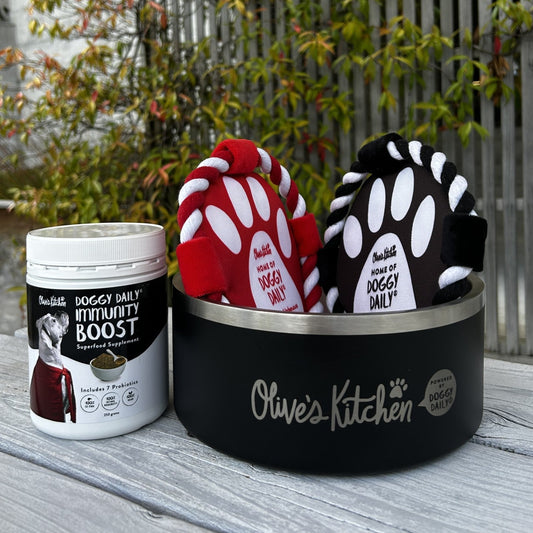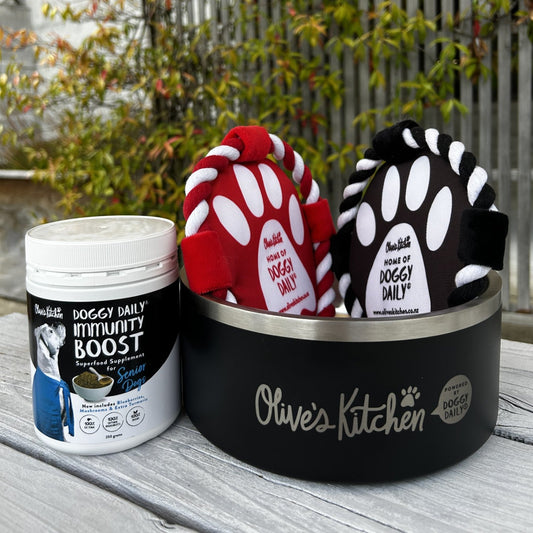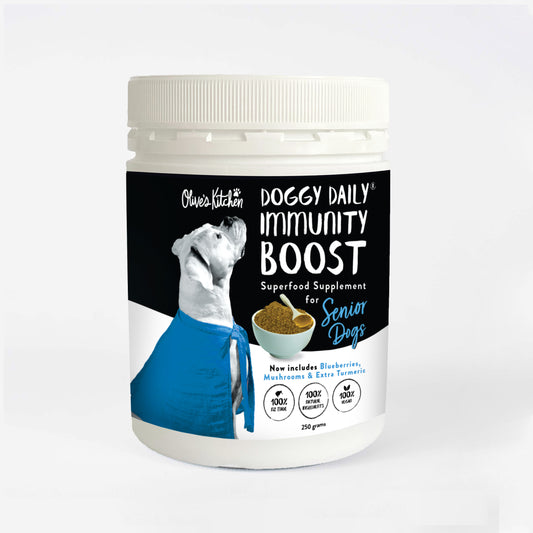What’s up with my dog’s bottom?
If your dog seems to be rubbing his bottom on things or trying to lick and bite at his nether region, he could be suffering from an anal gland issue.
What Are Anal Glands?
Anal glands are two small, oval-shaped sacs of fluid found in both male and female dogs near the anal opening. They sit between two layers of muscle inside the anus, one on each side approximately at the four and eight o'clock positions. The size of the sacs can range from a pea to a grape and they release a scent that makes your dog identifiable to other dogs. They can also become swollen, painful, and itchy.
How do I know if my dog has an anal gland problem?
Common symptoms include:
- Frequently scooting their butt on the ground
- Fishy or pungent smell
- Leaking a smelly liquid
- Excessive licking biting or itching of the rear area (including the base of the tail)
- Discomfort while sitting or walking
- Redness, bleeding or swelling of the anus
- Straining to defecate or constipation
- Blood or pus in the stool or near the anus
- Not allowing touching of tail or anus
Why Do Some Dogs Have Anal Gland Trouble and some don’t?
Some common causes include:
- Soft, loose or small stools (that won't produce enough pressure to naturally express the glands)
- Change in stool consistency or excessive constipation
- Gastrointestinal issues, like food allergies and inflammatory bowel disease
- Skin allergies that affect the area around the anus
- Anatomical abnormalities (some anal glands are positioned too far in or too low)
- Infection
- Frequent unnecessary, manual expressing (like at the groomers; this can cause scar tissue that prevents the glands from natural expression)
- Chronic skin dermatitis or yeast infections
- Low thyroid function
- Being overweight or obese
- Insufficient dietary fibre
- Genetics
- Small breeds are at higher risk ie Chihuahua
- Older dogs
- Cancer or tumours (less common)
How can I treat or prevent Anal Gland Problems?
There are a few things you can do at-home to manage anal gland problems. The most common causes of anal gland issues are related to defecating, so your vet will likely want you to try to bulk up your dog's poop first.
- Change your dog's food - You may need to change your dog's food, as some proteins don't work well for certain dogs. If your older dog has a particularly sensitive stomach, try salmon and turkey. This can work better for his poops. Your vet will be able to give you suggestions based on common food allergies.
- Add fibre to their diet
- Fibre bulks and firms the stool for more productive bowel movements
- Fibre feeds good bacteria in the gut
- Fibre creates short-chain fatty acids in the large intestine
- Fibre reduces inflammation in the body with short-chain fatty acids
- Provide plenty of exercise - Dogs who are overweight or obese are at a higher risk of having anal gland issues. Help your dog lose excess weight or keep his or her ideal body weight through plenty of exercise.
Is Chickpea flour a helpful fibre-rich addition to my dog’s diet?
Chickpeas are packed with fibre and other nutrients that are very healthy for dogs. It can help improve a dog’s digestion, can relieve both constipation and diarrhoea, and can help with stomach pain. Chickpea flour is also naturally gluten-free and it has an alkaline property that helps to maintain a pH balance in your pet which is great for skin health.
If you go searching for a new dog food or dog supplement, keep these benefits in mind!
LOVE NUGGETS TO THE RESCUE
Powered by Doggy Daily, the other hero ingredient in Love Nuggets is chickpea flour. Chickpea flour is a great source of protein for dogs, essential for building and repairing muscle tissue, along with maintaining a healthy immune system. It may also assist with anal gland challenges. Shop Love Nuggets (link to product)






